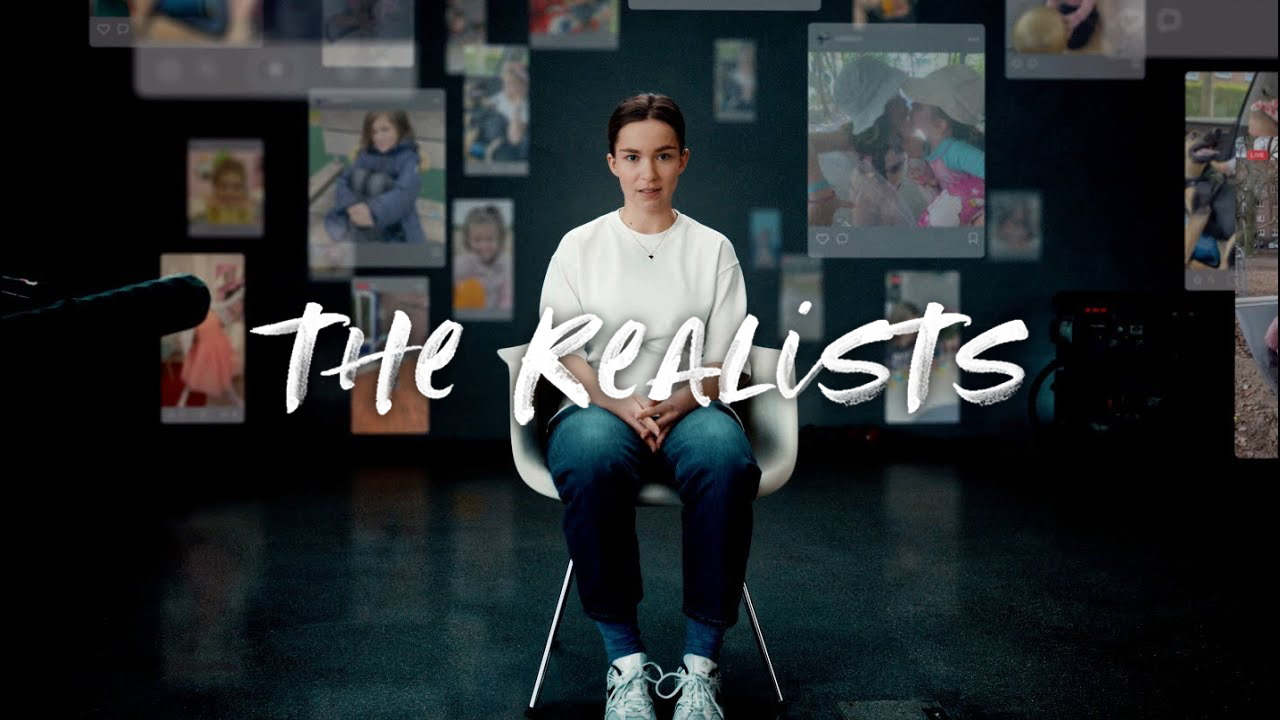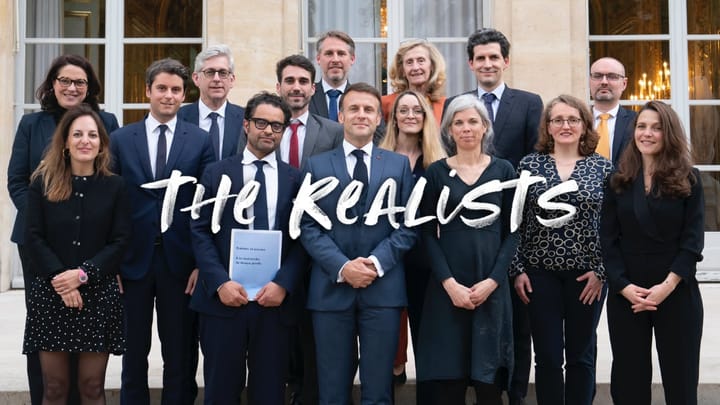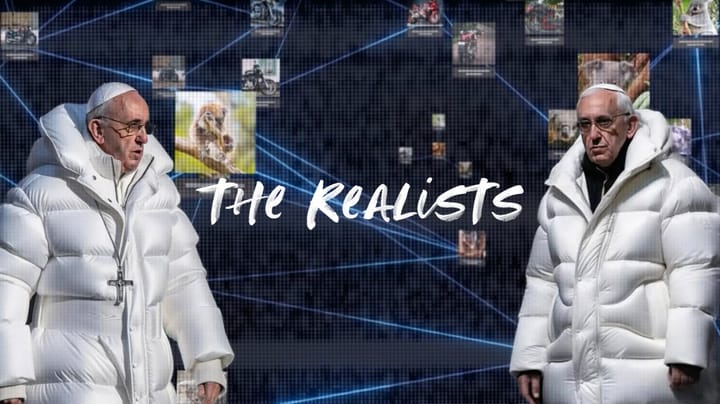Share with Care
In this brave new world of AI generated images, sharing photos of yourself online may have unintended consequences... and even more so for children

In last week's post "Seeing Is Believing?" I discussed the rise of generative AI technology and the deepfake scandals that seem to be occurring on a daily basis.
You may feel that the issue doesn't affect you directly. But think again: experts believe that by the year 2030 (i.e. in about six years' time) the vast majority of identity theft cases will originate from the personal photos and videos people share on their social media channels.
Six Photos of You
Like it or not, your face is a unique identifier – like a fingerprint. And most likely you have already widely disseminated your facial biometrics by posting photos of yourself on public social media channels.
It's incredibly easy to map a person's face and create a fake image from just a handful of photos. Apps like Lensa AI (mentioned in last week's post) and ReFace only need about six photos of a person to create impressively realistic-looking avatars, in fantasy scenarios.
Six photos.

I definitely have more than six photos of myself available online. I’ve been interviewed about my projects for articles in the press, I have a Wikipedia page with my photo on it, I’ve spoken at conferences and videos of me are available on YouTube. The cat is already out of the bag for me.
The Privacy Spectrum
My privacy is one thing. And then there is my child’s.
Ever since her birth I have been fiercely protective of her privacy – never posting her name or her face. This past summer on my private Instagram account I shared a rare photo of her from the back. A dear friend in Italy commented on it mentioning my child’s name. Again the account is private and I only have about a thousand followers but I don’t personally know most of them - so I promptly deleted that comment. My husband doesn’t use social media and neither do members of my immediate family. For now my child’s privacy is fairly easy to protect.
My view is that my child is too little to give consent to the content I could potentially share about her online. I want to respect and protect her privacy so that when she grows up she will feel she has full agency and control over her online identity. And she will have nothing to be embarrassed about: no toddler tantrums or “funny” photos made available for an online audience’s consumption.
This post is incredibly hard to write because I have many friends who are parents of small children and who publish photos of them online. I wouldn’t want them to feel critiqued by me or called out for doing things differently. This is such a deeply personal choice - similarly to “breastfeeding or formula?” “pacifier or no pacifier?” There is no right answer - everybody does what is best for themselves and their family. The ultimate goal of this article is to shed light on the consequences of sharing photos online in 2024 with the technological advances and trends we are seeing now. So that a parent can make an informed decision before posting photos.
Privacy runs on such a wide spectrum. My choice - no photos showing my child’s face on social media - is one end of the spectrum. The opposite end is called "sharenting" – the tendency of parents to post photos and videos of their children online. Actually, it’s not the opposite end - it’s the middle of the spectrum, because it’s something so common that most people don’t think twice before posting a cute family photo online. It feels absolutely normal.
And yet, this common action has consequences.
Without Consent
The German telecommunications company Deutsche Telekom released a video last July to educate parents about the dangers of sharenting in a video titled “Without Consent”.
The thought-provoking video campaign produced by adam&eveDDB and Tempomedia imagines how the deepfake of a child ("Ella") would educate the girl's parents about the dangers of sharing photos and videos of the real Ella online.
It's interesting how the German version of the video was seen about 6 million times, while the English version "only" has about 2.4 million views.
Could it be that the topic is too touchy for many parents and they may feel guilty and potentially called out by it? Or it still feel too abstract and not an imminent danger? Or is it too ahead of its time? For context, compare this to the numbers of views drawn by Dove’s "Real Beauty Sketches" - 70 million. A total of 8 million views is good but I wish more people had watched this important video.
1500 photos
“Without Consent” didn’t quite strike a chord with the general public. But its lessons are absolutely vital. Christian Loefert, Telekom Germany's head of marketing communications, said this about his campaign in an interview with Muse:
Every person has the right to decide on his or her own digital identity. [...] Studies show that an average five-year-old child has already had around 1,500 pictures uploaded without their consent by those they trust most: their parents. This material is unprotected on the net.
An average of 1,500 photos by the age of 5.
And scores of videos, too, that someone with bad intentions could easily download and use with AI generative tools to create a deepfake of a person, making them say whatever they wished.
Some powerful - and chilling stats - shared in the video:
- Over 75% of parents share their kids’ data on social media
- 8 out of 10 parents have followers they have never met
The video's title is "Without Consent" but the campaign also used the slogan "share with care" when discussing this video and the concepts it promotes.
As fictional Ella says in the video:
I know for you these pictures are just memories but for others they are data. […] What you share online is like a digital footprint that will follow me around for the rest of my life. I'm telling you this because I know you love me and would never do anything to harm me, so please Mom, please Dad protect my virtual privacy.
The Facebook Kids Grow Up
Facebook is about 20 years old now and toddlers and babies whose entire childhoods were documented online are now teenagers and adults. It’s fascinating to hear from them what their point of view is about sharenting.
An article by The Atlantic published last year covered this very topic: in “The First Social-Media Babies Are Growing Up—And They’re Horrified” by Kate Lindsay. Cosmopolitan this week devoted a series of articles to the topic of sharenting: “The Sharenting Reckoning.”
This is nothing new. Stats mentioned before and projections that by 2030 most cases of identity theft will spring from photos and videos shared online were already mentioned in a New York Times Op-Ed video 4 years ago. In “Why Kids Are Confronting Their Parents About 'Sharenting’” children and young adults have discussions with their parents about the videos and photos of them that their parents shared online without asking for permission. I would highly recommend watching it:
Negotiating with Others
My biggest challenge going forward: telling friends and fellow parents to refrain from posting photos of my child on their social media - in situations where we are socializing and friends are documenting the occasion with their smartphones. It’s impossibly awkward. I’ve brought up the subject a handful of times and it never gets easy. I just wish it became part of the etiquette: asking for consent before sharing photos online – especially of someone else's kids!
The Guardian’s Rhiannon Lucy Cosslett captured this brilliantly in her piece: “I resist sharenting on social media. Does that mean my son and I are missing out, or is it just safer?”
Even if you don’t want your child’s face online, negotiating with grandparents and other relatives can be tricky. Perhaps surprisingly, the older generation often seem less fazed about online security than their offspring, with grandparents desperate to show pictures on Facebook and some even going against the wishes of the parents. Discussing these boundaries can be fraught at times, and it often seems to be women who feel the most pressure to share. […] A primary school teacher who contacted me said that every year, she hears children complaining about the amount their parents share about them online. For me, and many other parents, it comes down to consent.
The closing paragraph deeply resonated with me:
I’d like my son to negotiate his digital footprint on his terms, but I understand and respect that other parents feel differently, and also wonder if the children without any digital footprint might wonder why, or feel left out. Ultimately, whatever we decide, it’s worth remembering that one day, we might have to sit down with our children and explain our reasoning.
The Analog Experience
You may think I don’t give much importance to photos. On the contrary! I’m a professional photographer, with 3 different camera systems (Canon, Nikon and Fujifilm) and a wide collection of lenses that I use depending on what mood I’m in and what kind of photos I’d like to capture.
I have even given my 3-year-old an old DSLR camera and it’s been an absolute delight to teach her photography and help her capture memories.
At the end of each year I spend about 2 hours a day for two weeks going through family photos and selecting the best ones – and then I order beautiful hardcover photo albums and give them as gifts to family members (my husband, his parents and my parents).
My daughter LOVES going through these photo albums and hearing stories about each photo. It’s cool to be able to summon these great pics without the need to use a digital device - because, no screen time for her! And since I have been doing this for years even before her birth, she also loves to see highlights from as far back as 2015.
My little one loves to take photos and my favorite activity is backing up her memory card every Monday morning, when she’s in pre-school. Her nanny (from her early days) comes to babysit one evening a week for a couple of hours and I’ve been stunned to discover the amazing portraits my child has been taking of her… as well as photos of activities they do together, like playing with DUPLOs, LEGOs and Play-Doh. I wanted to use a photo my child took of me, while I was photographing her, but that’s her own intellectual property so I didn’t use it, ha! This will be the first year that there will be two “The Year in Pictures” hardcover photo books: mine and hers. You won’t see them online. But if you are a real life friend I will most certainly put them in front of you if you come visit us at home.
It’s a different way of doing things - it’s our way and works out well for us. To each their own.
Elena
P.S.: remember how earlier I wrote about how privacy exists on a wide spectrum and I'm on one end... well, if you want to see what the opposite end is, here it is - from The New York Times: "A Marketplace of Girl Influencers Managed by Moms and Stalked by Men" (warning, this article may ruin your day)
💌 Did you enjoy this post? Share it with a friend!
☁️ You can follow me on Mastodon (my favorite network), Bluesky and Threads. All my other social media links are available here.
📽️ If you'd like to support my work, you could buy or rent my documentary The Illusionists on the globalization of beauty. Watch the opening:

✏️ If you'd like to say hi, my contact information is here
💬 If this post resonated with you, please leave a comment!





Comments ()